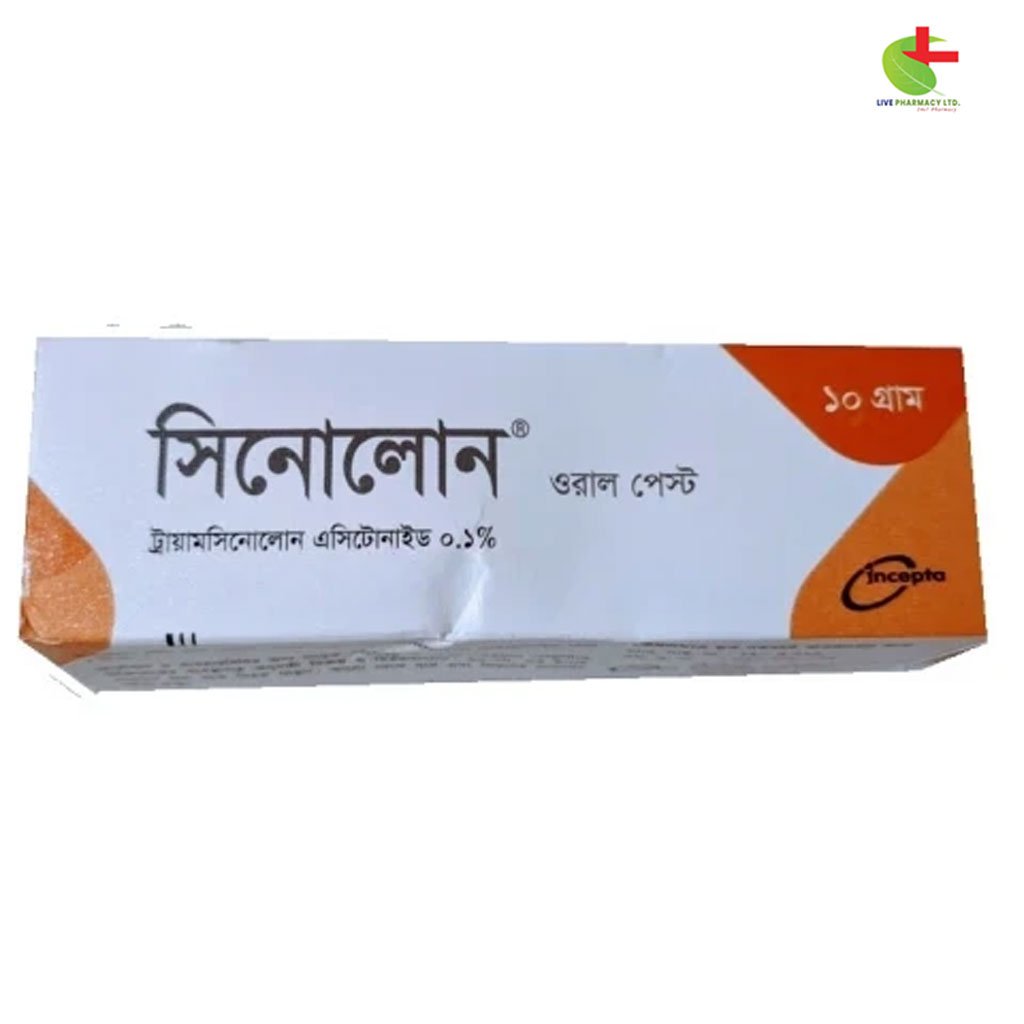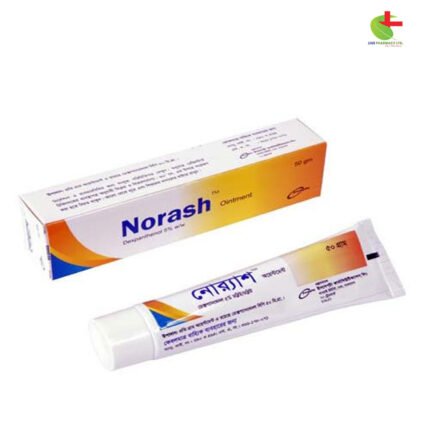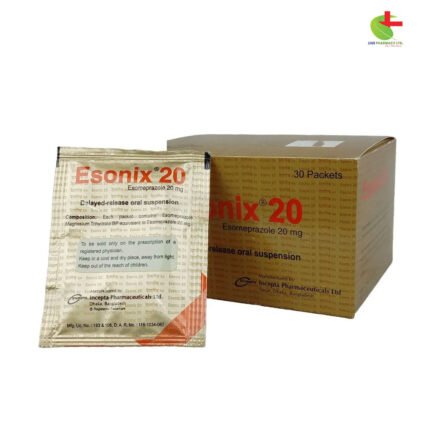Cenolon Paste
100.00৳ Tube (10gm)
- Cenolon Dental Paste USP 0.1% is formulated for adjunctive treatment of oral inflammatory and ulcerative lesions caused by trauma.
- It features triamcinolone acetonide, a topical corticosteroid with anti-inflammatory properties.
- Ideal for temporary symptom relief, Cenolon promotes healing with a simple application process.
- Consult your healthcare provider before use, especially in special populations such as children and pregnant women.
 Brand
Brand
|
Incepta Pharmaceuticals Ltd |
|---|---|
 Generics
Generics
|
Triamcinolone Acetonide |
 Type
Type
|
Oral Paste |
Indications
Cenolon Dental Paste USP 0.1% is designed for adjunctive treatment and provides temporary relief from symptoms related to oral inflammatory and ulcerative lesions caused by trauma.
Consult your registered healthcare provider before using this medication.
Pharmacology
Cenolon contains triamcinolone acetonide, a topical corticosteroid known for its anti-inflammatory, antipruritic, and vasoconstrictive effects. Although the exact mechanism of its anti-inflammatory action is not fully understood, it is believed that corticosteroids enhance the production of phospholipase A2 inhibitory proteins, collectively known as lipocortins. These proteins help regulate the synthesis of key inflammatory mediators, including prostaglandins and leukotrienes, by inhibiting the release of their precursor, arachidonic acid, from membrane phospholipids.
Dosage & Administration
To apply, gently press a small amount (approximately 1/4 inch) onto the affected area until a thin film forms. For larger lesions, a greater quantity may be necessary. It’s crucial to use just enough to cover the lesion with a thin layer without rubbing it in, as excessive spreading may lead to a gritty texture and crumbling. A smooth, slippery film will develop after application. For best results, apply Cenolon at bedtime to maximize contact time with the lesion overnight. Depending on the severity of the symptoms, applications may be necessary two to three times daily, ideally after meals. If significant healing does not occur within seven days, further evaluation is recommended.
Consult your registered healthcare provider before using this medication.
Contraindications
Cenolon Dental Paste is contraindicated for patients with a known hypersensitivity to any of its ingredients. It should not be used in cases of fungal, viral, or bacterial infections affecting the mouth or throat.
Side Effects
Potential local adverse reactions associated with corticosteroid dental pastes may include burning, itching, irritation, dryness, blistering or peeling that was not present before treatment, perioral dermatitis, allergic contact dermatitis, maceration of the oral mucosa, secondary infections, and atrophy of the oral mucosa.
Pregnancy & Lactation
Pregnancy Category C. Triamcinolone acetonide has been shown to cause teratogenic effects in various animal species. It is unclear whether the oral application of corticosteroids could lead to significant systemic absorption that might be detectable in breast milk. Therefore, caution is advised when prescribing corticosteroid dental pastes to nursing mothers.
Precautions & Warnings
Cenolon Dental Paste may cause local adverse effects. If irritation occurs, discontinue use immediately and seek appropriate treatment. Allergic contact sensitization to corticosteroids may be indicated by a lack of healing rather than a typical exacerbation seen with non-corticosteroid topical products, which should be confirmed through diagnostic patch testing.
In the presence of concurrent mucosal infections, an appropriate antifungal or antibacterial treatment should be administered. If a favorable response is not observed swiftly, the use of Cenolon should be halted until the infection is adequately managed. Should significant healing not occur within seven days, further investigation into the cause of the oral lesion is warranted.
Prolonged use of topical corticosteroids can result in reversible hypothalamic-pituitary-adrenal (HPA) axis suppression, signs of Cushing’s syndrome, hyperglycemia, glucosuria, and other adverse effects commonly seen with systemic steroid treatments. Therefore, patients on long-term therapy with corticosteroid dental pastes should be periodically assessed for HPA axis suppression. If such suppression is identified, an attempt should be made to either withdraw the medication or reduce its application frequency, as recovery of HPA axis function typically occurs quickly after discontinuation of therapy.
Use in Special Populations
Pediatric Use: The safety and efficacy of Cenolon Dental Paste in children have not been established. Pediatric patients may be more susceptible to HPA axis suppression and Cushing’s Syndrome due to a higher skin surface area relative to body weight. Therefore, the application of corticosteroid-containing dental pastes in children should be minimized to the lowest effective dose. Chronic use may hinder growth and development.
Geriatric Use: There is insufficient clinical data on subjects aged 65 and older to ascertain if they respond differently compared to younger patients. However, no significant differences have been noted in reported clinical experiences between older and younger patients.
Therapeutic Class
Corticosteroid, Glucocorticoids
Storage Conditions
Store Cenolon Dental Paste in a tightly closed container at temperatures between 20° to 25°C. Keep out of reach of children and protect from moisture.













Reviews
There are no reviews yet.